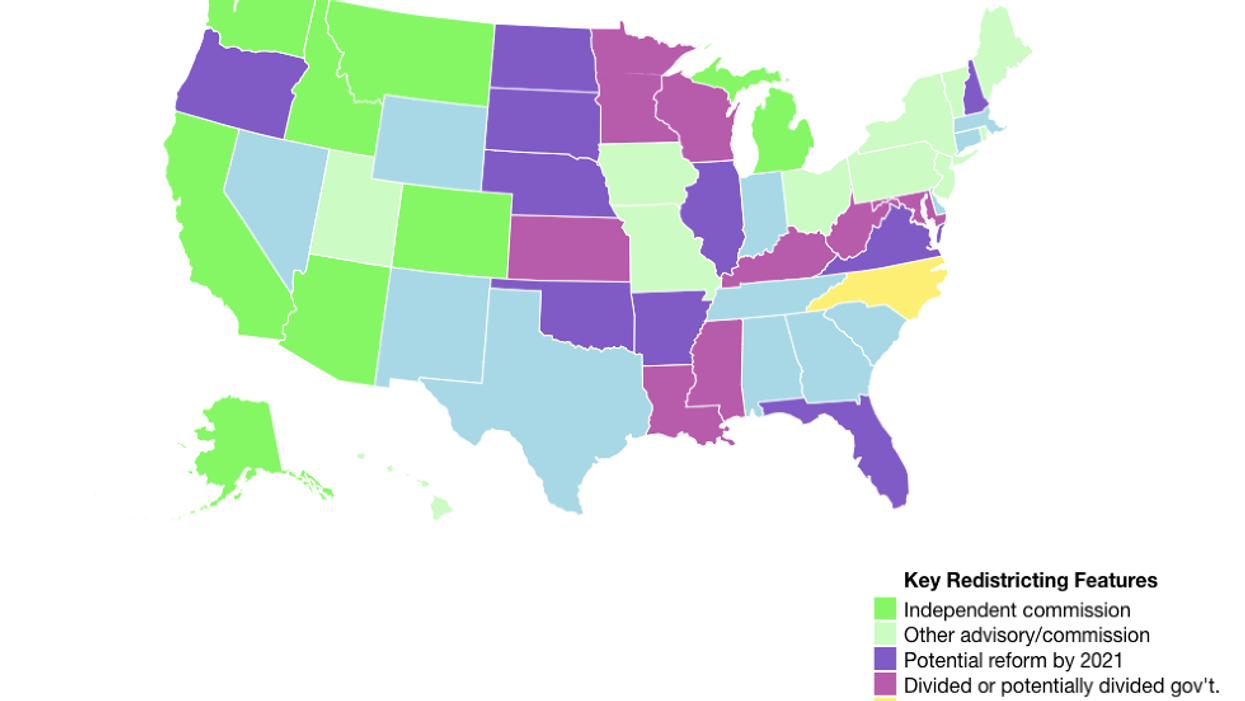An advocacy project at Princeton University has released a new guide for those who want to combat excessive partisanship in the drawing of legislative districts, hoping it will be a roadmap to help citizens push for fairer maps in all 50 states.
The guide was created by the Princeton Gerrymandering Project and released on the heels of last month's Supreme Court ruling that federal courts will not be in the business of assessing partisan gerrymandering claims.
The Princeton project's state information page offers a color-coded map that divides states by "key redistricting features." Eighteen are shaded dark or light green, for example, signaling a third-party commission or demographer already guides the drawing of voting districts.
Clicking any state reveals sections that explain how redistricting happens, the latest news and events there, actions that people can take to push for reform, as well as information about local advocacy groups and redistricting, in general.
Take New Hampshire, for example. On the state page, a visitor learns that the legislature has passed a redistricting-commission bill and is advised to contact the governor to encourage him to sign it.
Sam Wang, the Princeton neuroscience professor who founded the project, coauthored an amicus brief with the Supreme Court arguing that partisan gerrymanders can be measured using a variety of tools, an argument that the court's conservative majority rejected last month
"Now that the Supreme Court has run away from partisan gerrymandering, it's time to fight on a state-by-state basis," he wrote in a blog post announcing his state-level database.




















Trump & Hegseth gave Mark Kelly a huge 2028 gift